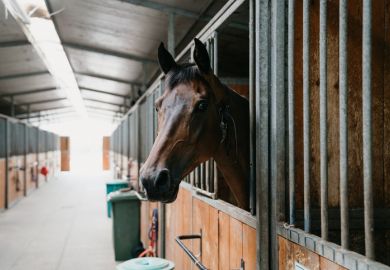After Linnaeus provided a classification of living organisms in 1735, there was intense interest in how new species came into being. Attention focused on hybridisation, the crossing of different species. The theory of Kolreuter was typical; he believed that the sexual material of the two parents blended.
At the start of the 19th century Brno, capital of the province of Moravia, was prosperous, and a scientific society was formed. Among the sheep breeders of Brno, the mechanism of inheritance was a question of urgent interest in relation to artificial selection, and the problem of its solution was already in the air when Gregor Mendel was born in 1822.
Mendel was a very able pupil who studied mainly the physical sciences at university. Because of poverty he entered an Augustinian monastery at Brno that contained an experimental garden. Then, at , he began studies in theology and agriculture to become a teacher, but failed a qualifying exam. What luck for him and us. For he was sent to study natural sciences in Vienna. There he was influenced by the botanist Schleiden, one of the founders of the cell theory, who emphasised the importance of cells and embryonic development, and undoubtedly also by his study of combinatorial mathematics and probability theory.
This biography fails to clarify why Mendel began his work on the heredity of peas, though the experiments themselves are described in such detail that the reader is left quite bemused. The great care Mendel took in planning his experiments nevertheless emerges strikingly. For example, he emphasised the necessity of using a large number of plants to eliminate "a mere chance effect". One of his most striking conclusions from his work is contained in a letter in which he makes it clear that parental traits remain separate and unchanged.
Historians of a philosophical and sociological bent have expended much effort in discussing exactly what Mendel was trying to achieve; and the author deals with their discussions in some detail. One view is that Mendel was interested only in describing the formation of hybrids and not in the laws of inheritance. It has even been suggested that the traditional idea of Mendel as the founder of genetics is no more than a myth. But this is hard to reconcile with his actual experiments and his writings. As the author points out, Mendel was the only person in the 19th century to demonstrate that the segregation of characters was in the ratio of 3:1 in the first generation but resolved into 2:1:1 in the next generation, thus refuting the theory of inheritance by blending.
It is ironic that while some people have dismissed Mendel as a theorist, others, like the great geneticist R. A. Fisher, have suggested that Mendel "cooked" his results to fit in with his theory; that is, he adjusted his sorting of his peas to fit his theoretical expectations. For those who have any doubts about Mendel's genius and monumental achievements, read the translation of his original paper published in William Bateson's Mendel's Principles of Heredity (1909).
Yet Mendel's 1865 report of his results in Brno evoked no response locally and little more internationally. His results influenced no one initially and genetics took off only when in 1900 deVries and Correns made similar discoveries and had to give priority to Mendel. Only later was Mendel's full contribution recognised. Premature discovery is not unknown in science, and perhaps Mendel himself did not fully appreciate his own contribution. The story of Mendel and genetics provides a nice example of the idea that, given enough able people working in any particular field of science, individuals do not, in the long run, matter. The genius will, of course speed things along, but the relevant laws will eventually be discovered, if not by X, then by Y.
While full of details that include Mendel's contributions to meteorology and his life as an abbot, as a whole this book is too discursive and unfocused to be satisfying. It is not for the general reader, but it will be invaluable for scholars of Mendel's life and work.
Lewis Wolpert is professor of biology as applied to medicine, University College London.
Gregor Mendel: The First Geneticist
Author - Vitezslav Orel
ISBN - 0 19 854774 9
Publisher - Oxford University Press
Price - £29.50
Pages - 256
Register to continue
Why register?
- Registration is free and only takes a moment
- Once registered, you can read 3 articles a month
- Sign up for our newsletter
Subscribe
Or subscribe for unlimited access to:
- Unlimited access to news, views, insights & reviews
- Digital editions
- Digital access to THE’s university and college rankings analysis
Already registered or a current subscriber?



